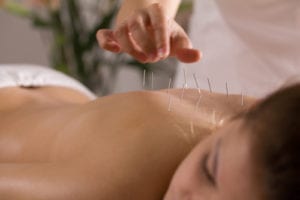If you were to be told, right now, that you’re about to enter an acupuncture session, what would you envision? For many Americans, acupuncture seems like a terrifyingly painful experience. A popular practice in the Eastern world, the Western world is still learning to become more open to holistic modalities such as acupuncture. Countries such as China have used acupuncture for preventative health measures for thousands of years – with the main difference between Eastern and Western practices being the approach. Western practices consider medicine to be used as a cure or relief to maladies, while Easter tradition utilizes medicine as a means to practice wellbeing.
Myths of Acupuncture
Despite much research that has shown the effectiveness of acupuncture, there are yet many Americans who fear trying it. The best way to combat this fear is to debunk some of the most infamous myths about it.
- The needles are painful. They may look intimidating in pictures, but acupuncture needles are extremely thin – in fact, they’re about as thin as a strand of your hair! According to the Acupuncture Massage College in Miami, Florida, over 14 million Americans have used or tried acupuncture as more people are realizing that it’s less painful and more effective than it appears to be.
- Acupuncture is outdated. Yes, acupuncture has been used for thousands of years – but as an all-natural treatment method, it’s worked for many people – and there’s been no reason to change it. Traditional Chinese Medicine is all about balance, and acupuncture aims to treat the mind, body and spirit – which gives it a holistic approach. The Eastern School of Acupuncture and Traditional Medicine states that by eliminating pain, increasing energy and restoring muscular function, acupuncture has maintained to be incredibly popular even today.
- If you don’t experience significant results after one session, it isn’t worth your time. If you attended a chiropractic session, would you be completely “cured” after just one visit? The reality is that our mind and body need repeated exposure to treatment modalities so that it can begin taking on the effects more permanently. Just as eating an unhealthy diet can develop a pattern of unhealthy symptoms, repeated use of acupuncture can promote a pattern of healthy reactions within a person.
What Research Says About Acupuncture
A 2018 study published in The Journal of Pain assessed the records of 20,827 patients who completed 39 trials of either acupuncture or “sham” treatment. Researchers found that acupuncture was highly effective for patients who needed treatment for chronic pain, particularly musculoskeletal pain, headaches and osteoarthritis pain. A few years ago, Time Magazine reported that Americans are spending $30 billion a year on complementary health approaches such as acupuncture – and it may be due to the impressive effects it can have on stress levels.
Stress and anxiety go hand-in-hand, and the needles of acupuncture help to release this by unblocking Qi (life force energy) from meridians (pathways within the body that Qi moves through). Injuries, stress, poor nutrition, and even changes in environment (such as transitioning from a life of addiction to one of recovery) can have major implications on the mind, body and spirit; acupuncture restores the balance of Qi when needles are placed on specific points of the body. To better explain it, Dr. Daniel Hsu, Doctor of Acupuncture and Oriental Medicine, told Everyday Health that Qi is simply another metaphor for metabolic function within the body.
Acupuncture has been shown to work very well for those in addiction recovery, who often experience mental health concerns that often negatively affect that mind, body and spirit in several ways. In 2016, researchers from Malaysia assessed 119 studies involving patients in addiction recovery and their experiences with acupuncture; they found that acupuncture held a strong therapeutic effect for those recovering from cocaine, nicotine and alcoholism. Acupuncture can assist with many other issues, however. UC San Diego School of Medicine provides quite a long list of conditions that may be treated, but here are a few:
- Allergies
- Depression
- Hypertension
- Lower back pain
- Morning sickness
- Neck pain
- Nausea and vomiting
- Sprains
- Stroke
- And more
In 2016, readers from The Guardian shared their personal stories of what it was like to attend acupuncture treatment. Once woman stated, “I was very pessimistic at first, but immediately after the treatment my back had eased significantly. I can only describe it as magic. I have no idea how it works, it just does…I’ve had it several times now for various back injuries and it’s worked every time.”
See for Yourself
Addiction recovery involves a lot of emotional ups and downs, and acupuncture could be a beautiful way to find healing and restoration amongst other aspects of treatment. The beauty of holistic practice is that you can combine it with other treatment modalities that work for you; we’re all different, and so it makes sense to have a personalized treatment program that suits your needs and interests. Don’t wait any longer to seek the help you need – call Avalon Malibu today.
Avalon Malibu is a world-renowned, California state-licensed mental health and substance abuse recovery center. If you are ready to seek treatment to develop the tools you need to overcome life’s obstacles and be on the road towards happiness, health, and well-being, call us today at 888-958-7511 for a consultation. It’s never too late, and there are people here ready to help you.











